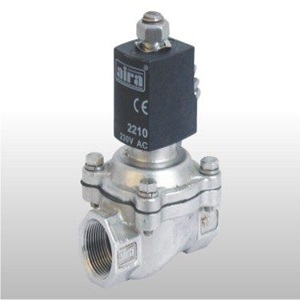Everything You Need to Know About Water Solenoid ValvesPosted by Aira Euro on February 26th, 2024  In the realm of fluid control systems, water solenoid valves play a pivotal role in regulating the flow of water in various applications. Whether in industrial processes, irrigation systems, or household appliances, these valves offer precise control and reliability. Let's delve into the intricacies of water solenoid valves to understand their functionality, applications, and significance. Understanding Water Solenoid ValvesWater solenoid valves are electromechanical devices designed to control the flow of water by opening or closing a valve through the activation of an electromagnetic coil. When an electric current is passed through the coil, it generates a magnetic field, which lifts or lowers a plunger or a similar mechanism to regulate the flow of water. These valves operate quickly and efficiently, making them suitable for a wide range of applications. Functionality and ComponentsA typical water solenoid valve comprises several key components, including:
Applications of Water Solenoid ValvesWater solenoid valves find applications across various industries and sectors:
Significance of Quality and ReliabilityWhen it comes to selecting water solenoid valves for specific applications, quality and reliability are paramount. Opting for valves from reputable manufacturers like Aira Euro Automation ensures durability, performance, and longevity. High-quality valves not only deliver precise control but also minimize the risk of leaks, malfunctions, and downtime, thereby optimizing operational efficiency and reducing maintenance costs. ConclusionThe water solenoid valve is an indispensable component in fluid control systems, offering precise control and reliable performance across various applications. Understanding their functionality, components, applications, and the importance of quality is essential for selecting the right valve for specific requirements. With trusted manufacturers like Aira Euro Automation leading the industry, businesses and consumers can rely on superior quality valves to meet their fluid control needs with confidence and efficiency. Like it? Share it!More by this author |


